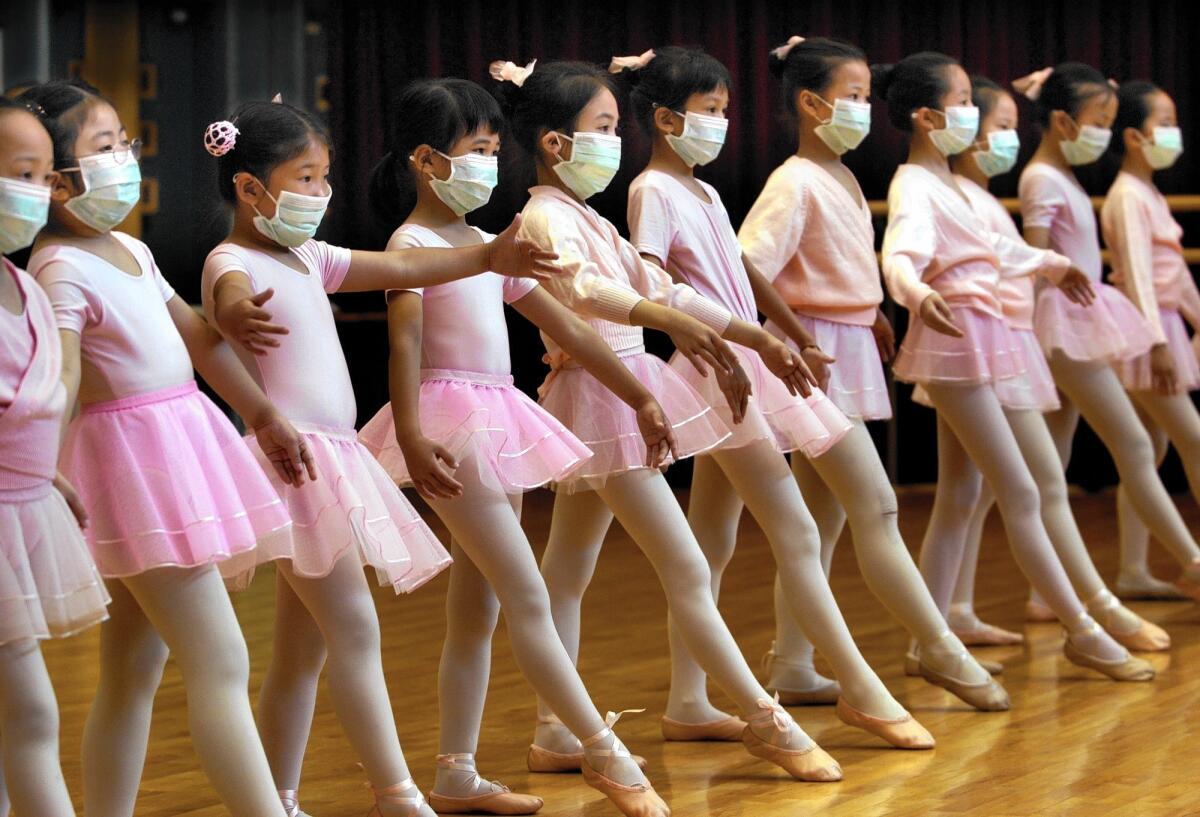Letters to the Editor: There was a coronavirus in 2003 that caused SARS. Here’s what readers said then

- Share via
Among our letter writers, the reaction to the novel coronavirus and the disease it causes, COVID-19, has mutated from the occasional dismissive comparison to the flu when the problem appeared mostly confined to China, to alarm and outrage over the federal government’s response to it now that new cases in the United States are being reported daily.
The most recent disease outbreak to which COVID-19 is being compared is the SARS scare of 2002-03, when thousands of people, mostly in China near Hong Kong, became sick with a flu-like illness — also caused by a coronavirus strain — that had a fatality rate near 10%. Then, the reaction by our letters stayed mostly in the “we’re blowing this out of proportion” stage, with some exceptions.
Here is what some readers said about SARS in 2003.
On May 5, 2003, Sergio C. Stone of Villa Park compared SARS to malaria:
“Nothing can better document society’s lack of proportion and perspective than the present alarm about SARS. Without minimizing its seriousness and the threat it may pose to human health, the near panic and the economic disruptions are completely out of proportion to its importance.
“Malaria infects millions in Africa, India, Southeast Asia and parts of South America year after year, devastating their peoples and the local economies. Three thousand children die every day in Africa alone, and the world does not even notice.”
On May 7, 2003, William J. Spelliscy of Orange called for universal healthcare:
“America’s failure to provide its citizens with a national healthcare system makes it possibly the most vulnerable nation on Earth to severe acute respiratory syndrome or a future terrorist-induced epidemic. There is no one in Vietnam, Japan or Canada who cannot go to a doctor because he or she cannot afford it.
“In contrast, untold millions, and rising, cannot access a healthcare professional to have their feverish condition diagnosed in the U.S.”
On May 11, 2003, Cameron Lee of Redondo Beach criticized a university for overreacting:
“UC Berkeley’s decision to bar summer students from certain Asian countries is misguided and hints of racism. It claims the decision is based on logistical deficiencies, but the truth is that it was based entirely on media-fed fear....
“This was a sledgehammer solution to a scalpel problem. Berkeley is supposed to be an institution of higher learning. But in this instance, it has only taught us that it is just as susceptible to irrational acts as the rest of us.”
On May 27, 2003, Barbara Sommer of Los Angeles suggested AIDS was a bigger problem than SARS:
“Why has the SARS scare ‘taken over’ the world health community — it is looking to control and cure the spread as quickly as possible — while the HIV/AIDS epidemic has been a ‘back burner’ issue from the beginning, it seems? Controlling the spread of HIV/AIDS is as important as — if not more than important than — this new virus, in my opinion.”
More to Read
A cure for the common opinion
Get thought-provoking perspectives with our weekly newsletter.
You may occasionally receive promotional content from the Los Angeles Times.










